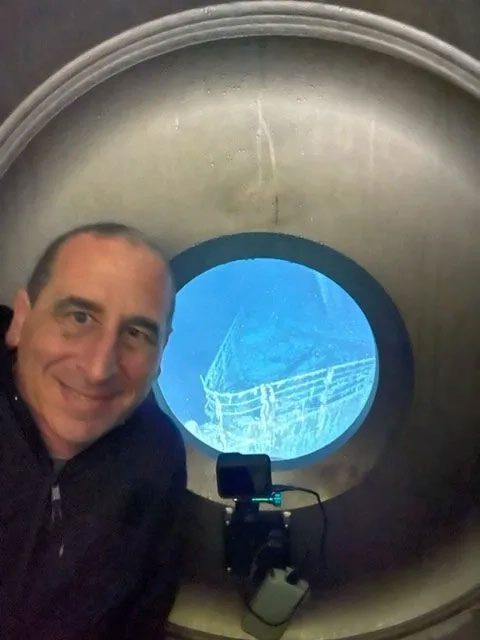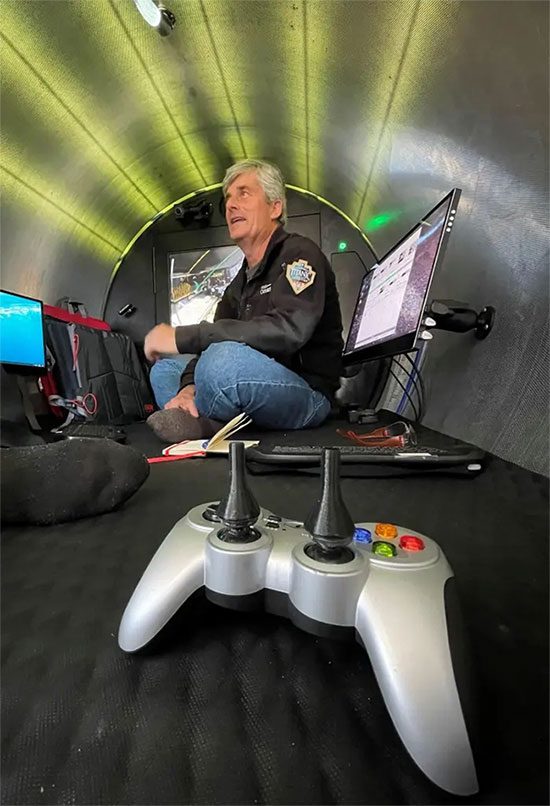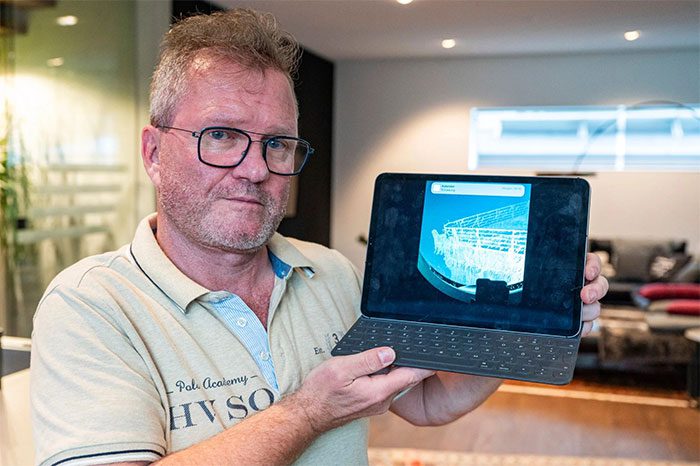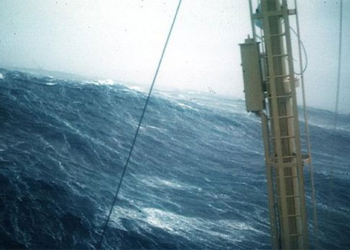As the submersible carrying Mike Reiss approached the wreck site only 500 feet away, “the compass started acting crazy, leaving the entire crew disoriented.”
The “Crazy” Compass
Mike Reiss decided to bring a few sheets of paper with him as he descended to the bottom of the North Atlantic. He wanted to ensure he had something to write a few final jokes in case something went wrong.
Mike Reiss, an Emmy Award-winning writer and producer known for the famous animated series The Simpsons, dived to a depth of nearly 4,000 meters along with four others inside OceanGate Expedition’s Titan submersible to witness the “historical wreckage.”
“He knew this was very dangerous,” Denise, Mike Reiss’s wife, told the New York Post, “Yet even in the worst situations, he remained humorous.”

Reiss could see the bow of the Titanic through a window slightly larger than a washing machine door.
In an interview with ABC News, Reiss recounted his previous experiences with OceanGate’s Titan submersible before the tragedy struck last week, claiming the lives of five passengers on board.
According to Reiss, throughout his journey, the vessel consistently faced technical issues.
“You always know that this is very dangerous; any small problem can turn into a major disaster,” Reiss stated, noting that all four of his trips with OceanGate encountered communication issues.
“It seemed like something had happened to the system,” Reiss said, “I don’t blame OceanGate; I think it’s due to the deep water.”
Moreover, this producer mentioned that passengers preparing to embark on OceanGate’s journey had to sign a waiver, which mentioned the possibility of death three times on the very first page.
“Sometimes you still do things knowing full well these risks and hope for the best,” Reiss remarked.
During the trip to the Titanic, Reiss noted that when their submersible was only about 450 meters away from the wreck, “the compass started acting crazy, leaving us unsure of our direction.”
“The compass eventually stopped working. We spent 90 minutes just circling around, searching for the Titanic in complete darkness,” Reiss recounted. Fortunately, the crew eventually found the Titanic and was able to take photos.
“We didn’t have a great experience with the Titanic in reality,” Reiss said, “but we had an experience on Instagram. We were there long enough to take pictures of the anchor, windows, and railings.”

The Titan submersible’s cabin is cramped, allowing only one person to stretch their legs at a time.
Like a “Suicide Mission”
Meanwhile, Arthur Loibl (61), a retired businessman and explorer from Germany, became one of OceanGate’s first customers and accompanied two of the passengers who recently lost their lives on the Titan.
Loibl noted that he came up with the idea of visiting the Titanic wreck while on a trip to Antarctica in 2016. At that time, a Russian company was offering exploratory dives for half a million dollars.
However, after OceanGate launched its exploration service a year later, Loibl decided to seize the opportunity, paying $110,000 for a dive in 2019. Unfortunately, that trip failed when the first submersible did not pass its tests.
Two years later, Loibl had a successful expedition alongside OceanGate CEO Stockton Rush, French diver and Titanic expert Paul-Henri Nargeolet, and two men from England.
“Imagine a metal tube several meters long with a metal plate laid out as a floor. You can’t stand up, you can’t sit, you can only kneel; everyone is packed together or on top of one another,” Loibl recounted.

Loibl described the expedition as a “suicide mission.”
During the two and a half hours, the lights on the submersible were turned off to save energy. The only source of light came from glow sticks.
However, the trip was delayed several times to fix issues with the batteries and balance the weight. Altogether, this journey lasted up to 10 and a half hours.
Loibl mentioned that his group enjoyed the stunning view of the Titanic wreck, being luckier than other tourists who only saw a piece of debris or nothing at all. Some customers were even not refunded when bad weather prevented the vessel from diving further.
Yet now looking back, Loibl feels “chilled” by what he experienced.
“Looking back, I realize I was a bit naive. It truly felt like a suicide mission,” Loibl said.





















































